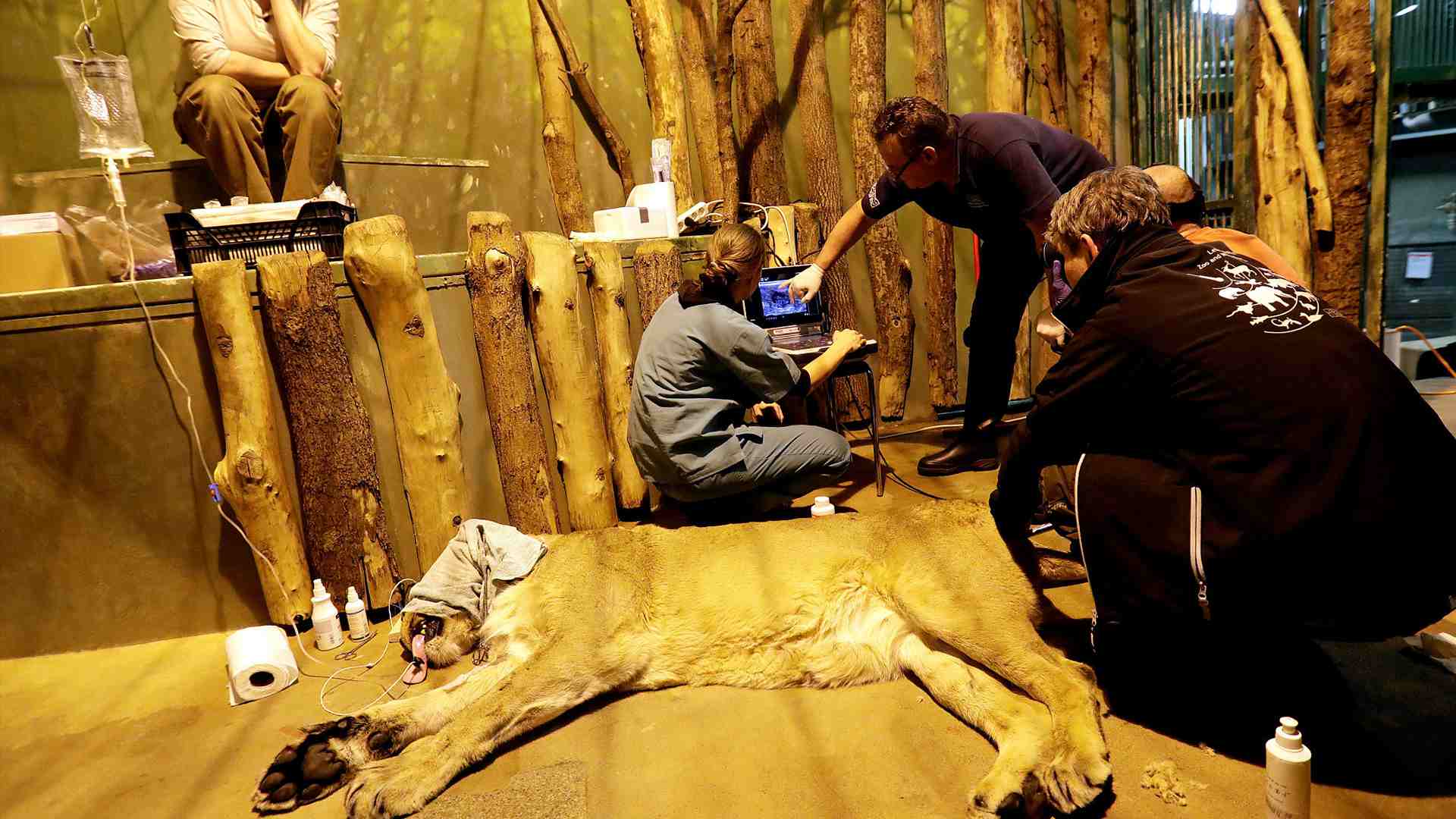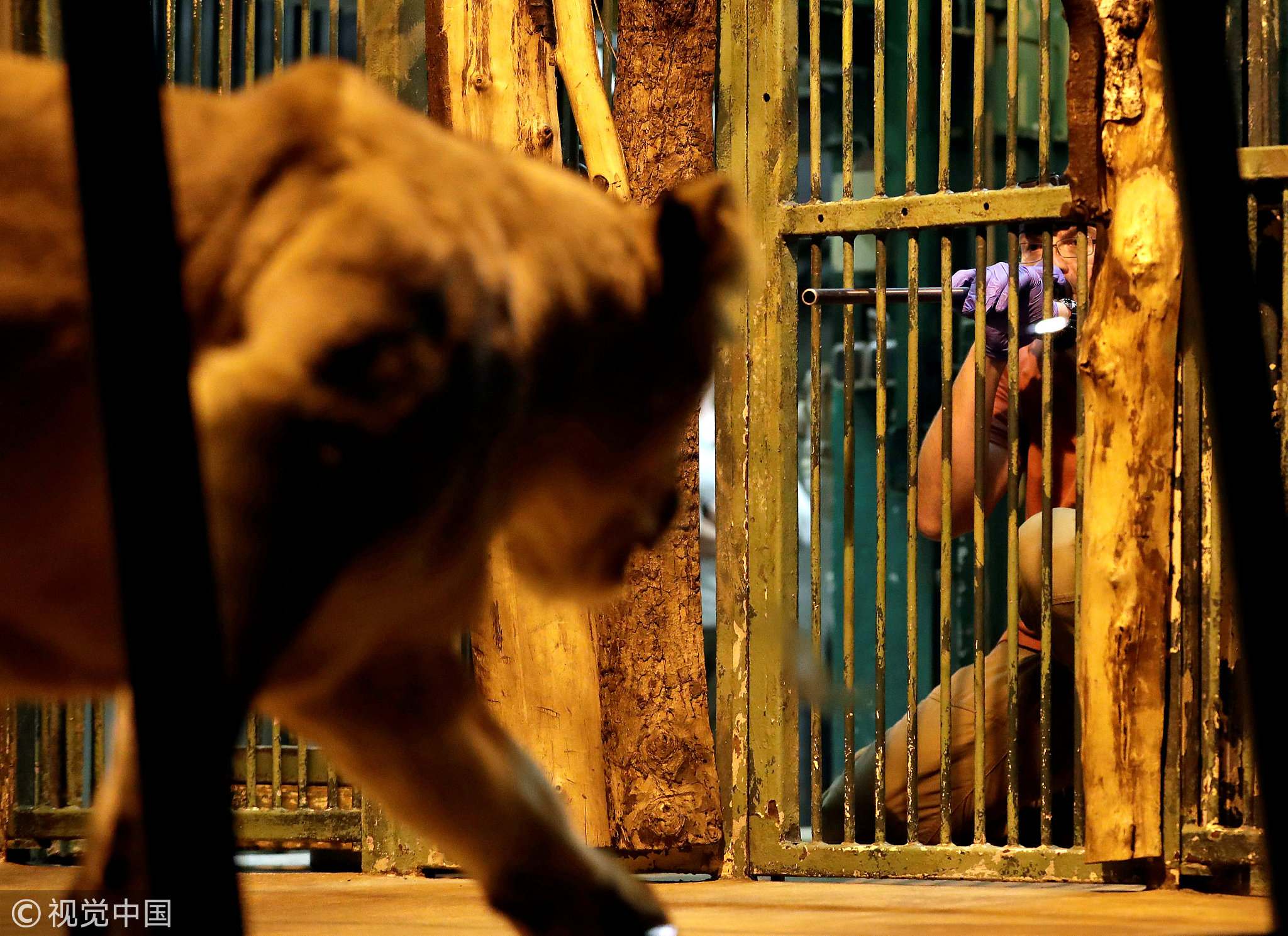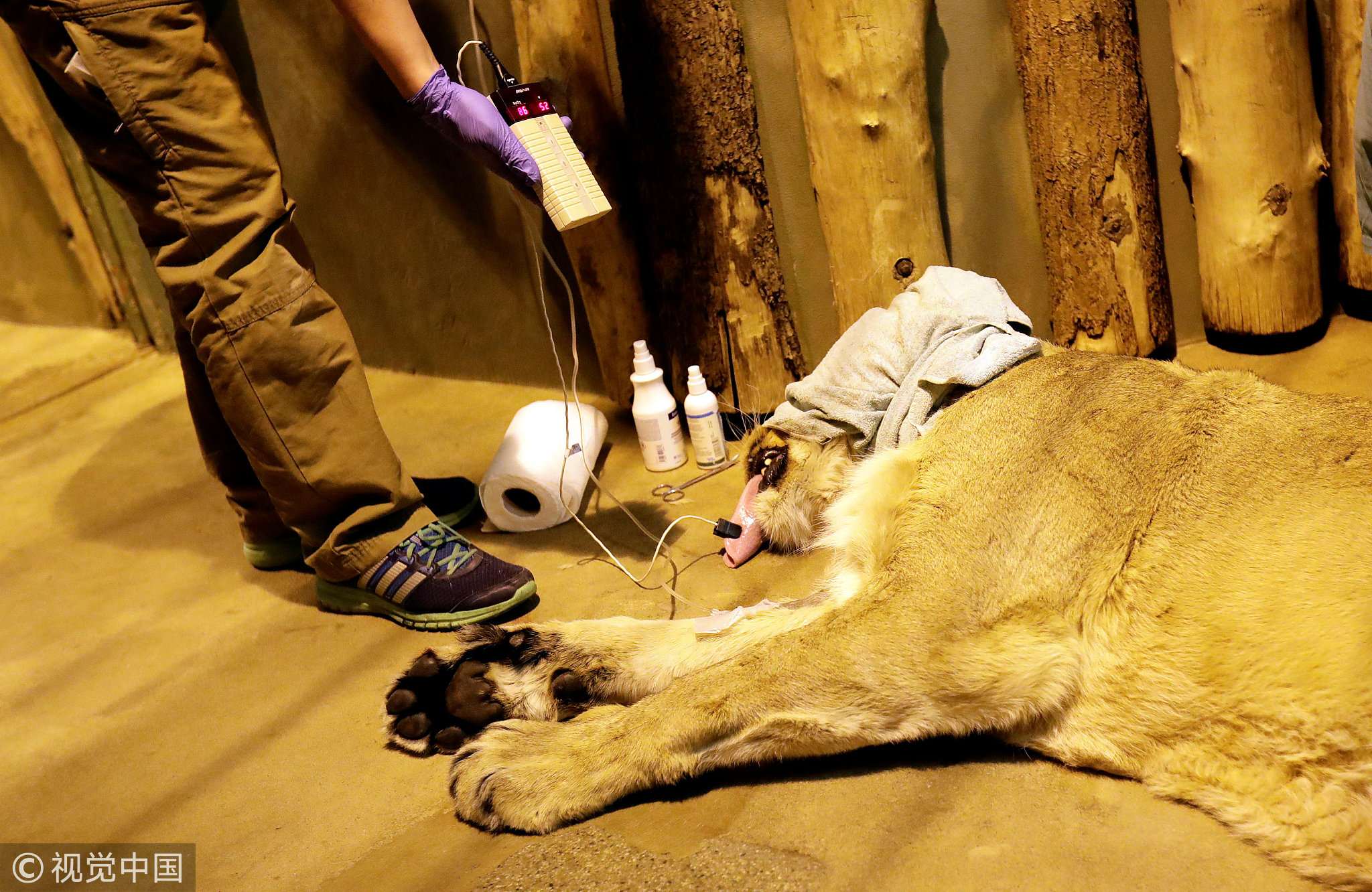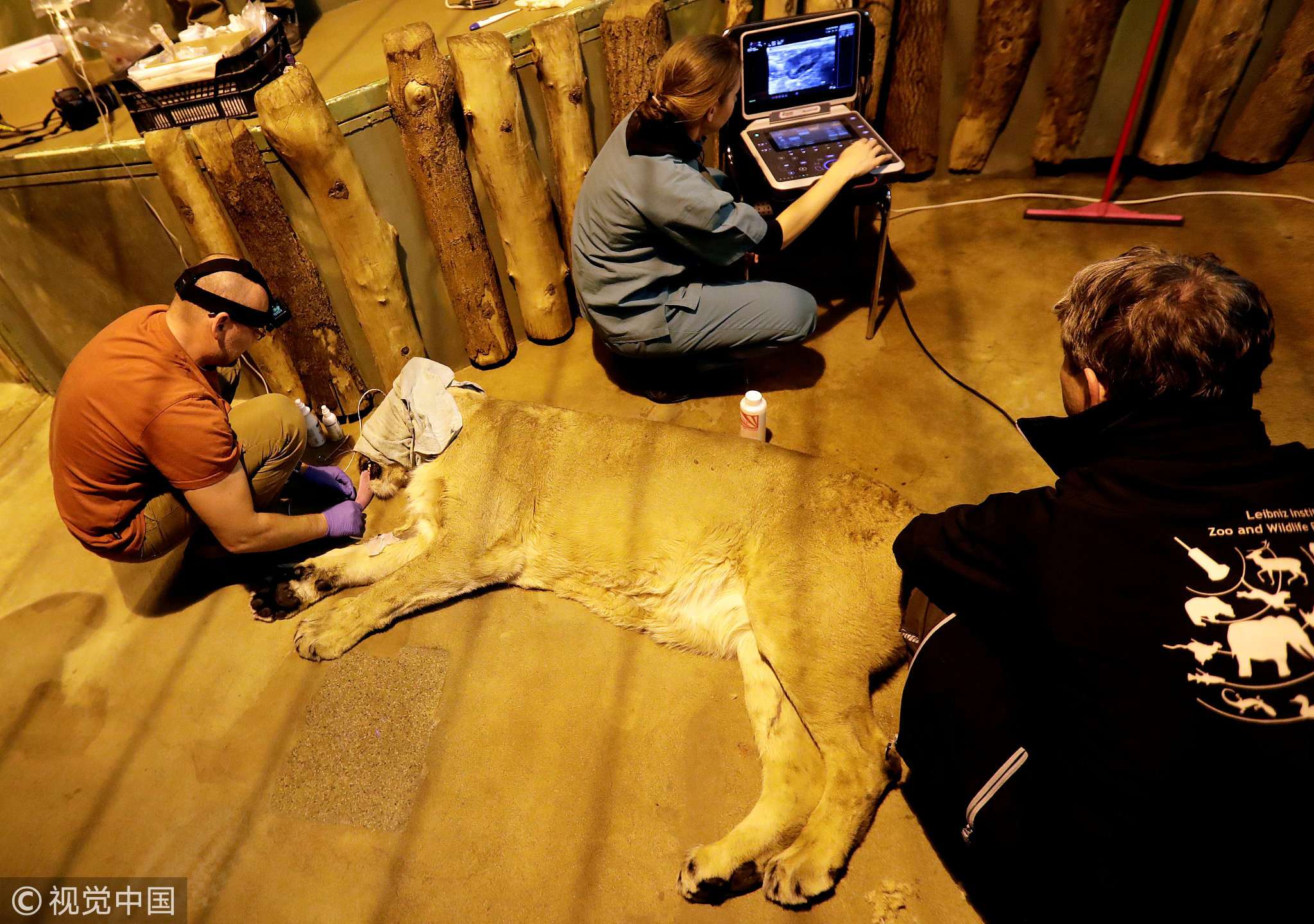
Nature
14:37, 04-Jan-2019
Prague Zoo's rare Asiatic lioness Ginni artificially inseminated
Updated
13:30, 07-Jan-2019
CGTN
00:57

When you're an endangered species and your partner just isn't in the mood, drastic measures are called for, as Ginni, one of Prague Zoo's Asiatic lionesses, found out on Thursday when she underwent an artificial insemination procedure last night.
The attempt was a last-ditch effort after failed hopes the zoo's three cats, male Jamvan and females Ginni and Suchi brought from India in 2015, would procreate naturally and widen the European gene pool of the animals.
"Jamvan is not dominant enough, he is not willing to mate or when he tries, they chase him away," Prague Zoo mammals curator Pavel Brandl told reporters.
Sohan, another male borrowed from a zoo in the eastern Czech city of Ostrava, also failed to get Ginni pregnant but did manage to trigger ovulation.

A veterinarian shoots a tranquilizer dart at Ginni, Prague Zoo, Czech Republic. /VCG Photo
A veterinarian shoots a tranquilizer dart at Ginni, Prague Zoo, Czech Republic. /VCG Photo
The Asiatic lion is slightly smaller than its African relative and while the wild population has recovered somewhat, it still only numbers around 600 in the Gir Protected Area in India's Gujarat, its only natural habitat.
The big cats are vulnerable to poaching as well as illness, with 24 dying last year due to the canine distemper virus and a parasitic infection caused by ticks, Prague Zoo said. There are 143 living in captivity in Europe but all are bred from 11 ancestors, limiting the gene pool.

A veterinarian prepares Ginni, Prague Zoo, Czech Republic. /VCG Photo
A veterinarian prepares Ginni, Prague Zoo, Czech Republic. /VCG Photo
In the end, zookeepers opted to use a mail lion's sperm to inseminate Ginni during Wednesday's procedure, which, if successful, should see cubs born in about four months.
"The timing was perfect... the insertion was perfect," said Thomas Hildebrand, head of department for reproduction management at Leibniz Institute for Wildlife Research in Berlin, and one of the team of Czech and German experts that carried out the procedure.
"We are quite hopeful this is a success," he added.

Veterinarians work during an artificial insemination procedure on Ginni, Prague Zoo, Czech Republic. /VCG Photo
Veterinarians work during an artificial insemination procedure on Ginni, Prague Zoo, Czech Republic. /VCG Photo
His Czech colleague sounded a more cautious note however.
"In general, we can say that the chance is smaller in comparison with natural copulation. We have to wish a lot that it turns out well," said Prague Zoo Chief Veterinarian Roman Vodicka.
The process has been used previously in large mammals including elephants or rhinoceroses, but is rare for big cats.
An African lioness in South Africa gave birth to the world's first lion cubs through artificial insemination in September, the University of Pretoria, which led the procedure, said at the time.
Source(s): Reuters

SITEMAP
Copyright © 2018 CGTN. Beijing ICP prepared NO.16065310-3
Copyright © 2018 CGTN. Beijing ICP prepared NO.16065310-3